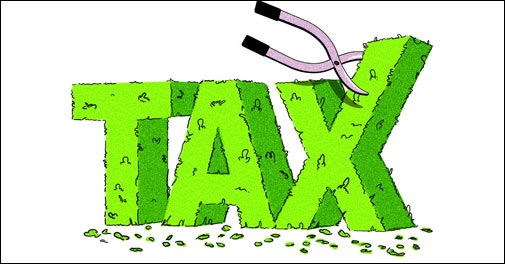Tax saving deductions are known to all but when and on what conditions they are withdrawn are known to few.To know about the conditions when tax benefits are withdrawn, read on. Life Insurance policy, long term capital gain, pension, housing loan principal and newly introduced Rajiv Gandhi Equity Savings Scheme are few of them which are available as deductions under various sections of The Income Tax Act, 1961 but the benefit is also withdrawn on non-fulfillment of certain conditions. we discuss these conditions below.
Financial year is going to end in March and most salaried employees are in a hurry to invest their money to get deduction under section 80C and other sections of the Income Tax Act, 1961 to save tax. Most of the time a decision taken in haste leads to wrong decisions. Most employees miss out on the whole year of interest if they invest at the year-end in Fixed Deposits (FD) and National Saving Certificate (NSC). Most of the investments come with a lock in period and an omission to read the same may lead to revoking or rolling back of the taxexemptions availed by an assessee. Some provisions which mostly unknown to salaried employees is the withdrawal of exemptions availed in previous years. These withdrawals have been discussed as below.
All the provisions discussed are in context to Indian Income Tax Act, 1961
1. Life insurance policy termination within 3 Years U/S 80C
Most common form of investment by an employee is to take a Life Insurance Policy to get deduction under section 80C and also save tax accordingly. When a policy is purchased in hurry the terms and conditions are mostly overlooked and when in next year the policy does not seem to suit the individuals needs or taste, he goes for cancellation of policy.
Provisions say that a life insurance policy taken out cannot be revoked before three years if the tax benefits are to be claimed in full. In order to get the full benefit of deduction and consequently tax savings. If an individual revokes his life insurance policy after 1 or two years then he will have to forego the tax savings availed in earlier year in which the policy was taken out.
Generally a policy is terminated either by surrender of policy or by stopping to pay the premium.
Even ULIP (unit linked plans) if are discontinued before 5 years then too the benefit of tax savings will have to be foregone. Meaning if investment is discontinued then the benefit allowed earlier stands withdrawn.
2. Rajiv Gandhi equity savings scheme(RGESS) U/S 80CCG
This scheme also comes with a time bound investment of 3 years with a compulsory initial blanket 1 year lock-in. Now if the security is either sold or pledged during this 1 year period then the assessee will lose his tax savings which he availed by investing in this scheme.
3. Housing loan principal U/S 80C
Housing loan principal and interest is another deduction which most of salaried employees avail, but most are ignorant about the rollback of benefit clause in case of sale of house within 5 years from the year in which the possession of house was taken.
The entire amount of principal amount claimed as deduction u/s 80C in previous years will be added back to the income of the assesse in the year of sale of the house property.
Although this rollback of tax benefit is for the principal amount only allowed u/s 80C and not the interest allowed u/s 24(b).
4. Long term capital gain U/S 54
If a house property is sold after a holding period of 3 years then long term capital gain arises. This long term capital gain can be saved by purchasing or constructing a new residential house property within 2 or 3 years respectively. Now in case this new house is sold within 3 years then all the Long term Capital Gain saved will become taxable.
Now there is another catch that the deduction u/s 54 is for purchase or construction of 1 house only, so in case the assessee purchases another residential house within 2 years after the sale of old long term capital asset the deduction as well as the savings stands withdrawn.
5. Senior Citizen savings scheme (SCSS) U/S 80C
SCSS seems to be very attractive for senior citizen with an interest rate of 9.3 %, but is also the most penalizing if any default is made in following the lock-in period of 5 years. Any sum deposited under this scheme cannot be withdrawn before 5 years and if the assessee withdraws from the fund then the principal as well as the interest will be treated as income of the assessee and taxed accordingly in the year of withdrawal.
The only relief here is that the taxable amount on withdrawals within lock-in period will not include the amount of interest on which tax has already been paid on an accrual basis.
Summary
Salaried employees always discuss and ask about means of saving tax but only on short term basis and this may lead to long term loss to their financial goals. These deductions are valid and are beneficial only if the period of investment is also followed. The lock-in period are imposed so that the individual stays invested for a little longer period rather than just investing for sake of saving taxes.
Keeping in mind these tax withdrawal conditions will save many from losing tax benefits and also in taking correct decisions before investing in any kind of tax reducing instruments.






